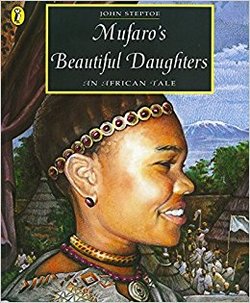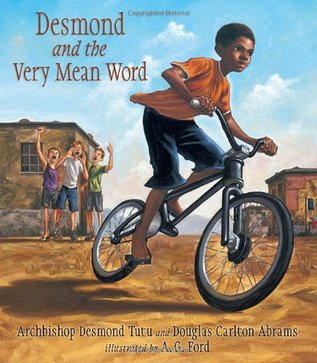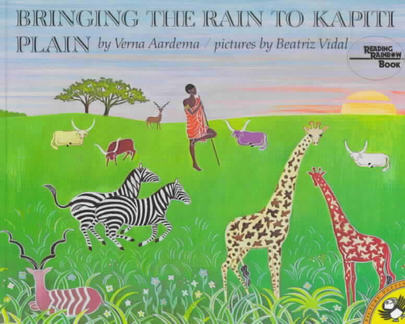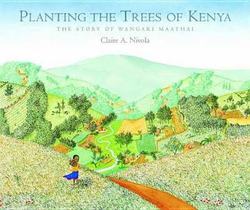|
WOW! I am still in awe that Camp Imaginators went around the world in just 20 days...well 19 days since we had a holiday in the last week. Camp Imaginators is a collaboration between the Reading Garden and Arty Pants Studio TT. This year the Reading Garden facilitated the journey around the world through children's stories and Arty Pants Studio TT facilitated the journey through art. For those who could not keep up or who just could not read every blog here are a few pictures of the literature part of the journey. So many stories were read and so many lessons were learned as we journeyed around the world. When I first started The Reading Garden I used to joke that I was a one man show. That may still be true for my 0 to 3 Parent and Me sessions but at camp time a small team is definitely needed to help execute our offerings. So here is a shout out to the folks that assisted The Reading Garden @ Camp Imaginators.
Thank you to Aunty Christianna for her always beautiful and creative props and art work. Thank you to Aunty Joanna for all the fabulous pictures and classrooms assistance. Thank you to Aunty Adesha for her excellent classroom management of the younger Imaginators. Look out for our future camps and collaborations! Never miss another event! Sign up for our mailing list today!
1 Comment
 The interactive read aloud of Mufaro's Beautiful Daughters takes the "Cinderella type story" count on our amazing journey around the world to three! It's good to mix something familiar with something new and these Cinderella stories from around the world have allowed The Reading Garden to do just that! This story is set in Zimbabwe and tells the tale of two sisters who lived in a small village with their father, Mufaro. Manyara was selfish and unkind and Nyasha was loving and kindhearted. The King of a city not too far away sent a message that he was looking for a wife. Mufaro decided that his two daughters would go to the city so the King could choose between them. Of course, Manyara wanted to be chosen, so she left the night before the planned departure so she could ensure the King met her first. On her journey through the forest she met a small boy who asked her for food. She was mean to him telling him that she would soon be queen and had only enough food for herself. She then met an old woman who warned her not to laugh at the trees up ahead, though they would laugh at her. She also told her to say good morning to the old man who would be holding his head in his hand. Manyara did the opposite of all she had been told. Meanwhile, after discovering that Manyara had left before them, Nyasha , her father and the other villagers left on their journey to the city. Nyasha saw the same little boy and before he could even ask she fed him. She also encountered the old woman, who gave her directions and she offered the old woman a sack of pumpkin seeds. When she finally saw the city she was in awe and became very excited to see the King. When Nyasha and her father arrived at the King's palace Manyara was hysterical. She told her sister she should not go to see the King as she had been and was greeted by a snake with 5 heads that told her he was not pleased with her and almost ate her. Nyasha still ventured bravely to see the King. When she entered the room she saw Nyoka, a garden snake she had befriended. He told her that he was the King and that he was also the little boy and the old woman. He was pleased with Nyasha and transformed into the King right before her eyes. Of course, Nyasha married the King and Manyara became a servant in the palace. When I completed the reading one little reader stood up tall and said " Miss it does not pay to be unkind. If you are unkind you should only expect bad things!" "Yes Yes!!" the others shouted in agreement. Well my work here is done! What a beautiful way to end camp. I used this story to teach the children about adjectives. They willingly did their the exercise and then went off to art.  Our final stop with the older readers takes us to South Africa, the home of many great men including Nelson Mandela and Archbishop Desmond Tutu. The chosen story, Desmond and the Very Mean Word was actually co-authoured by the Archbishop. As we explored South Africa and it's greatness we had to touch on some of its hateful past. We discussed apartheid and how Desmond Tutu and Nelson Mandela fought for its abolition. Desmond Tutu, in his author's note, likened the system of apartheid to the absurdity of someone saying that all people with small noses were better than all people with big noses. The children were clearly very moved by the video I showed them about these two men as they volunteered to read the author's note themselves. This story is a story about something both Nelson Mandela and Desmond Tutu live by; forgiveness. The story describes the events that unfolded when Desmond was called a "mean word" ( don't worry parents the word was never mentioned, and these innocent children struggled to imagine what it could be). Desmond goes against Father Trevor's advice to forgive and retaliates by seeking out the boy to call him a mean word as well. Desmond felt awful about retaliating and later tells the boy sorry. The boy is speechless and when he sees Desmond again he offers him chocolate. Desmond rides off on his bike feeling freed by his ability to forgive! This book is a MUST read. A great book to use to discuss topics such as race relations and bullying when you think your child is ready for such discussions. I don't know why I chose writing a summary as the passport entry for the last day of camp but I have to say that 90% of the children completed the task without complaining! They did however express their desire to do something a little less challenging! LOL! It's the last day of camp so...maybe...but no! This story was too important for the children not to summarize and document the lessons learned. I'm almost sad that camp has ended. It's so much hard work but at the end I always have a feeling of satisfaction! We WILL BRING THE BOOK BACK! Here are some pictures taken my Aunty Joanna. Hop over to Arty Pants Studio to see what the children did in their sessions on this, the last day of Camp Imaginators 2017!
 Bringing Rain to Kapiti Plain is yet another book written in the cumulative dialogue / chain tale style. The younger children enjoyed this book though they took a little longer to follow the story. However, by the time we neared the end they got it and they were actually able to repeat some of the sentences. The story tells the tale of how Ki-pat helped to bring the rain to renew the land and the animals on the Kapiti Plain. "This was the shot that pierced the cloud An loosed the rain with thunder LOUD! A shot from a bow, so long and strong, And strung with a string, a leather thong; A bow for an arrow Ki-pat put together, With a slender stick and an eagle feather; From the eagle who happened to drop a feather, A feather that helped to change the weather. It fell near Ki-pat, who watched his herd As he stood on one leg like the big stork bird; Ki-pat, whose cows were so hungry and dry, They mooed for the rain to fall from the sky; To green-up the grass, all brown and dead, That needed the rain from the cloud overhead- The big, black cloud, all heavy with rain, That shadowed the groud on the Kapiti Plain." The children's passport entry consisted of a simple colouring exercise. They coloured the Kapiti Plain before and after the rains.  The older readers were treated to a reading of Planting The Trees of Kenya - The Story of Wangari Maathai. Wangari Maathai is the founder of the Green Belt Movement and a 2004 Nobel Peace Prize Winner. She was the first woman of East and Central Africa to earn a doctorate degree. The story tells of Kenya before and after Wangari went to college in the USA. Before Wangari left for college the land was clothed with green. It was fertile and the people and animals were healthy. There was enough food and water for everyone. Five years later when she returned the earth was barren, millions of trees had be cut down and the people and animals no longer prospered. The women in the villages complained and blamed the government for their now hard life but Wangari was never a complainer. Instead, she taught the women how to plant trees to restore their land. Most of the women were uneducated but they did not need education to plant trees. Together the brought the land back to it's former glory and when the men saw their good work they too joined the mission to save the trees of Kenya. In thirty years, since Wangari's Green Belt Movement thirty million trees have been planted in Kenya and the people continue to plant. "When the soil is exposed" Wangari tells us, "it is crying out for help, it is naked and needs to be clothed in its dress. " The children's passport entry consisted of answering a few questions about the story. One of the questions was - How do you feel about Wangari Maathai? Most of them said they felt inspired by her and thought she was a good woman. The kind of woman we need! My heart is overflowing. :) Tomorrow, is the last day of camp!....It's bitter sweet. I will miss my discussions with the children but tomorrow isn't here yet! One more day to read out loud to the Imaginators!! Aunty Joanna is back! So here are some pictures of today's activities. See what the children did in their Arty Pants Studio sessions today!
|
